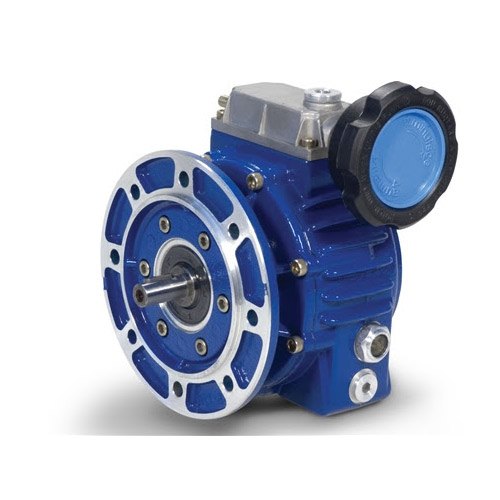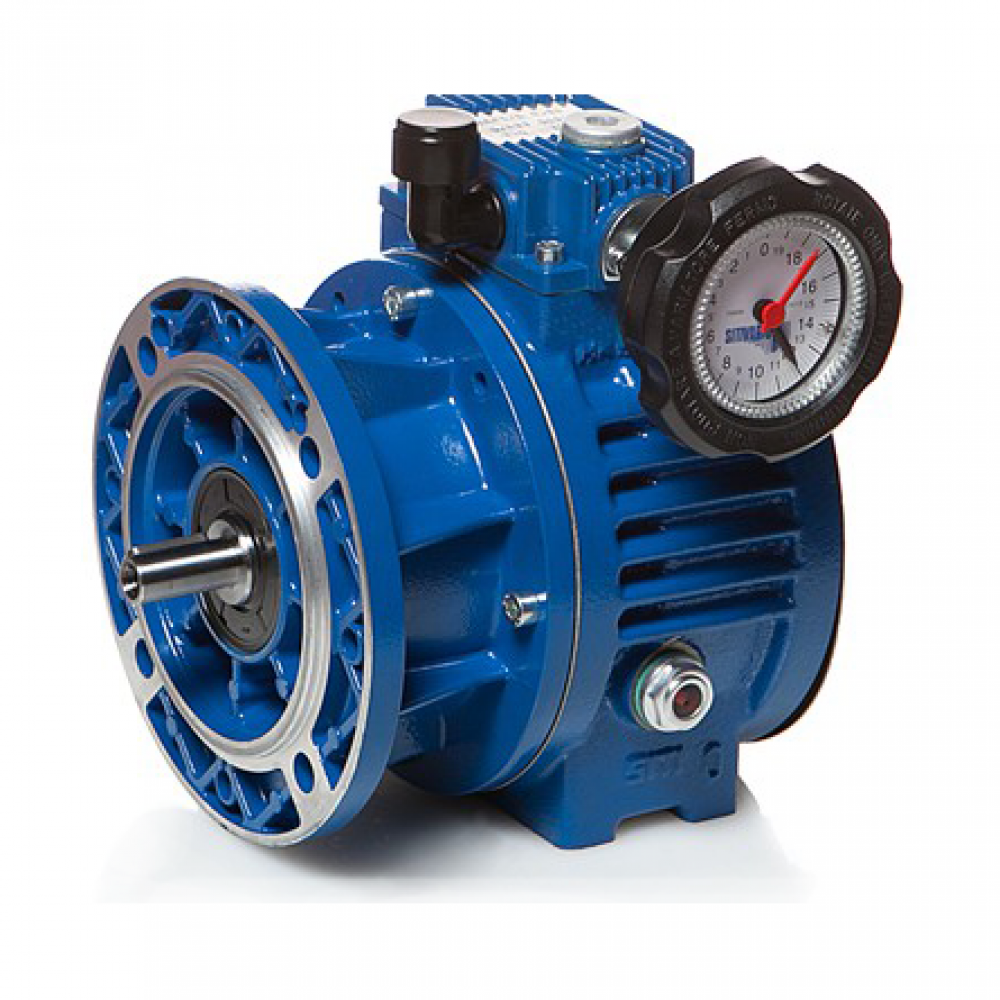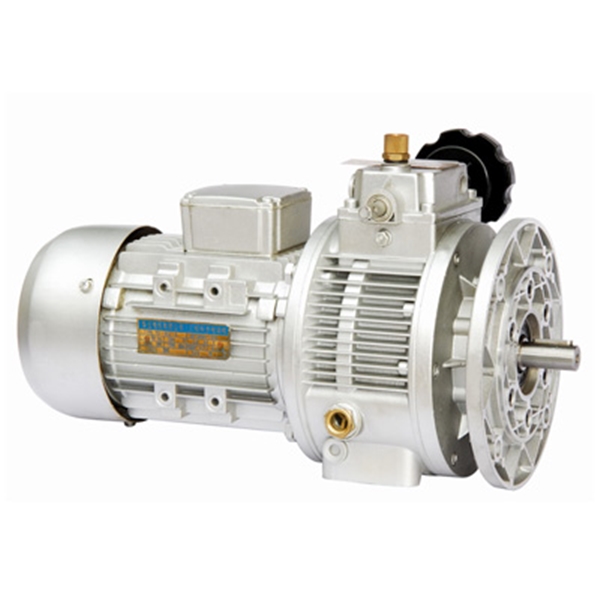Product Description
1) High precision of speed regulating for speed variator,UD gear box: up to 0.5-1 round
2) Large speed-changing range: the speed ratio ranges from 1:1.4 to 1:7 freely
3) High intensity and long serving time
4) Convenient to regulate speed
5) Continuously workable, bidirectional working direction,smooth running,
stable, and quiet
6) Fully sealed and suitable to any environment
7) Compact structure, small size
8) High quality aluminum alloy die-cast, elegant shape, light weight and non-rusting
9) Good adaptability: can be combined with all kinds of reducers to achieve low
stepless speed changing
10) Input power: 0.18-7.5kW
/* March 10, 2571 17:59:20 */!function(){function s(e,r){var a,o={};try{e&&e.split(“,”).forEach(function(e,t){e&&(a=e.match(/(.*?):(.*)$/))&&1
| Hardness: | Hardened Tooth Surface |
|---|---|
| Installation: | Vertical Type |
| Layout: | Coaxial |
| Samples: |
US$ 30/Piece
1 Piece(Min.Order) | Order Sample |
|---|
| Customization: |
Available
|
|
|---|
.shipping-cost-tm .tm-status-off{background: none;padding:0;color: #1470cc}
| Shipping Cost:
Estimated freight per unit. |
about shipping cost and estimated delivery time. |
|---|
| Payment Method: |
|
|---|---|
|
Initial Payment Full Payment |
| Currency: | US$ |
|---|
| Return&refunds: | You can apply for a refund up to 30 days after receipt of the products. |
|---|

Can variators be customized for specific industries or machinery configurations?
Yes, variators can be customized to meet the specific requirements of different industries and machinery configurations. Manufacturers of variators understand that different industrial applications may have unique needs in terms of load characteristics, operating conditions, control system integration, and other factors. As a result, they offer customization options to ensure optimal performance and compatibility. Here are some ways variators can be customized:
1. Load and Torque Ratings:
Variators can be customized to handle specific load requirements and torque ratings. Manufacturers can design and manufacture variators with different torque capacities to match the demands of different machinery or equipment. This customization ensures that the variator can effectively handle the expected load conditions without exceeding its torque limitations or compromising performance.
2. Speed Range:
Depending on the machinery configuration and application requirements, variators can be customized to provide the desired speed range. Manufacturers can adjust the gear ratios and design the variators to operate within specific speed ranges to match the speed requirements of the machinery. This customization allows for precise control and optimization of the machinery’s speed performance.
3. Environmental Considerations:
Variators can be customized to meet specific environmental conditions. Certain industries or machinery configurations may require variators that can withstand harsh environments, such as high temperatures, extreme humidity, or exposure to dust and debris. Manufacturers can incorporate enhanced protection and sealing mechanisms to ensure the variators can operate reliably in these challenging conditions.
4. Control System Integration:
Variators can be customized to integrate seamlessly with different control systems. Manufacturers can adapt the communication interfaces and protocols of the variators to match the specific requirements of the machinery’s control architecture. This customization allows for smooth integration with existing control systems, such as programmable logic controllers (PLCs) or other automation systems.
5. Mounting and Form Factor:
Variators can be customized to accommodate specific mounting configurations and form factors. Different machinery configurations may require variators with specific dimensions, mounting options, or shaft configurations to ensure proper installation and compatibility. Manufacturers can provide custom solutions to meet these specific mounting and form factor requirements.
6. Additional Features and Accessories:
Manufacturers can offer customization options by incorporating additional features and accessories into the variators. These can include specialized connectors, monitoring sensors, remote control capabilities, or specific software functionalities. By tailoring the variators with these additional features, they can better align with the unique needs of the industry or machinery configuration.
7. Compliance with Industry Standards:
Variators can be customized to meet specific industry standards and certifications. Depending on the industry or application, there may be specific regulatory or safety standards that variators need to comply with. Manufacturers can customize the design and manufacturing processes to ensure that the variators meet these standards and certifications.
In conclusion, variators can be customized to suit specific industries or machinery configurations. Manufacturers offer customization options to address factors such as load requirements, speed range, environmental conditions, control system integration, mounting configurations, additional features, and compliance with industry standards. By customizing variators, industries can ensure optimal performance and compatibility with their specific machinery and application needs.

Are there aftermarket upgrades available for variators to enhance their functionality?
Yes, there are aftermarket upgrades available for variators that can enhance their functionality and improve the performance of vehicles. These upgrades are designed to optimize power delivery, increase durability, and provide additional features. Here’s a detailed explanation of aftermarket upgrades available for variators:
1. Performance Variator Kits:
Aftermarket performance variator kits are designed to improve the overall performance of the variator. These kits often include upgraded components such as variator pulleys, sliders, and roller weights. The upgraded components are engineered to reduce friction, improve power transfer efficiency, and enhance the variator’s response. Performance variator kits can provide better acceleration, increased top speed, and improved throttle response, resulting in enhanced vehicle performance.
2. Adjustable Variator Pulleys:
Adjustable variator pulleys allow users to fine-tune the gear ratios of the variator. By adjusting the pulley positions, users can customize the variator’s performance to suit their specific needs and preferences. Adjustable variator pulleys can optimize power delivery, improve acceleration, and fine-tune the variator’s behavior for different riding conditions or modifications made to the engine. These pulleys offer increased flexibility and control over the variator’s functionality.
3. High-Performance Variator Belts:
Upgrading to high-performance variator belts can enhance the durability and power transmission capabilities of the variator. High-performance belts are designed to withstand higher temperatures and handle increased power loads. These belts often have advanced materials and construction techniques that improve their strength, flexibility, and resistance to wear. By upgrading to high-performance variator belts, users can improve the reliability and longevity of the variator, especially in high-performance or modified engine setups.
4. Variator Sliders and Roller Weights:
Aftermarket variator sliders and roller weights offer improved performance and adjustability. These components directly impact the variator’s shifting characteristics and the rate at which the gear ratios change. Upgraded sliders and roller weights can provide quicker and smoother shifts, allowing for better acceleration and improved throttle response. Additionally, aftermarket sliders and roller weights come in various weights and profiles, allowing users to fine-tune the variator’s behavior to match their riding style or specific performance requirements.
5. Variator Springs:
Aftermarket variator springs are designed to provide specific tension characteristics that can optimize the variator’s performance. Variator springs affect the rate at which the variator engages and changes gear ratios. Upgrading to aftermarket variator springs can improve launch performance, enhance low-end torque, or provide a more progressive power delivery. By selecting springs with different tension values, riders can customize the variator’s behavior to suit their riding style or desired performance characteristics.
6. Integrated Variator Tuning Modules:
Integrated variator tuning modules, often referred to as ECU or TCU (Engine Control Unit or Transmission Control Unit) tuning modules, are aftermarket devices that allow users to modify the variator’s behavior through electronic control. These modules plug into the vehicle’s electronic system and enable adjustments to various parameters such as shift points, shift speed, and shift firmness. By modifying the variator’s electronic control settings, users can enhance performance, improve throttle response, and customize the transmission behavior to match their preferences.
7. Variator Cooling Systems:
Aftermarket variator cooling systems are designed to improve the cooling efficiency of the variator. These systems often include additional cooling fins, heat sinks, or external coolers that help dissipate heat generated during operation. By improving cooling, aftermarket variator cooling systems can prevent overheating, reduce heat-related performance losses, and increase the overall durability of the variator. These upgrades are particularly beneficial for high-performance applications or when operating in extreme conditions.
In conclusion, aftermarket upgrades for variators offer a range of options to enhance their functionality and improve vehicle performance. Performance variator kits, adjustable variator pulleys, high-performance variator belts, upgraded sliders and roller weights, variator springs, integrated variator tuning modules, and variator cooling systems are some of the available upgrades. These upgrades provide opportunities to optimize power delivery, increase durability, and customize the variator’s behavior according to specific preferences or performance requirements.

In what types of vehicles or machinery is a variator commonly used?
A variator is commonly used in various types of vehicles and machinery where the ability to provide variable speed or torque output is desirable. It offers advantages such as continuous gear ratio variation, stepless gear shifts, and optimized engine RPM. Here’s a detailed explanation of the types of vehicles and machinery where a variator is commonly used:
1. Automobiles:
One of the most common applications of a variator is in automobile transmissions. Continuously variable transmissions (CVTs) equipped with variators are increasingly being used in passenger cars, SUVs, and other vehicles. CVTs with variators provide smooth and seamless acceleration, improved fuel efficiency, and optimized power delivery. They are particularly beneficial in stop-and-go traffic situations and urban driving conditions.
2. Motorcycles and Scooters:
A variator is also commonly used in the transmissions of motorcycles and scooters. CVT systems with variators provide a smooth and responsive riding experience, allowing riders to easily adjust the speed and torque output. They offer advantages such as reduced gear shifting, improved acceleration, and enhanced fuel efficiency.
3. Industrial Machinery:
In industrial machinery applications, variators are used in systems that require adjustable speed or torque output. For example, variators can be found in conveyor systems, pumps, fans, and other equipment where precise control and flexibility are necessary. The ability to continuously vary the speed or torque allows for efficient operation and adaptability to different workloads.
4. Agricultural Equipment:
Agricultural machinery, such as tractors, combines, and harvesters, often use variators in their transmissions. The variators enable these machines to adjust their speed and torque output based on the specific requirements of different agricultural tasks. This flexibility allows for efficient operation in various field conditions and crop types.
5. Construction and Earthmoving Equipment:
In the construction and earthmoving industry, variators are used in machinery such as excavators, loaders, and bulldozers. These machines often require variable speed and torque to handle different tasks, such as digging, lifting, or pushing. Variators enable the equipment to adjust its output to match the specific requirements of each operation, improving productivity and control.
6. Marine Applications:
Variators are also utilized in marine applications, including boats, yachts, and ships. CVTs with variators provide smooth and efficient power delivery, allowing for precise control of the vessel’s speed. They offer benefits such as reduced vibration, improved fuel efficiency, and enhanced maneuverability.
In summary, variators are commonly used in automobiles, motorcycles, industrial machinery, agricultural equipment, construction and earthmoving machinery, and marine applications. They provide the ability to adjust speed or torque output continuously, resulting in improved performance, efficiency, and control in a wide range of vehicles and machinery.


editor by CX 2024-01-24